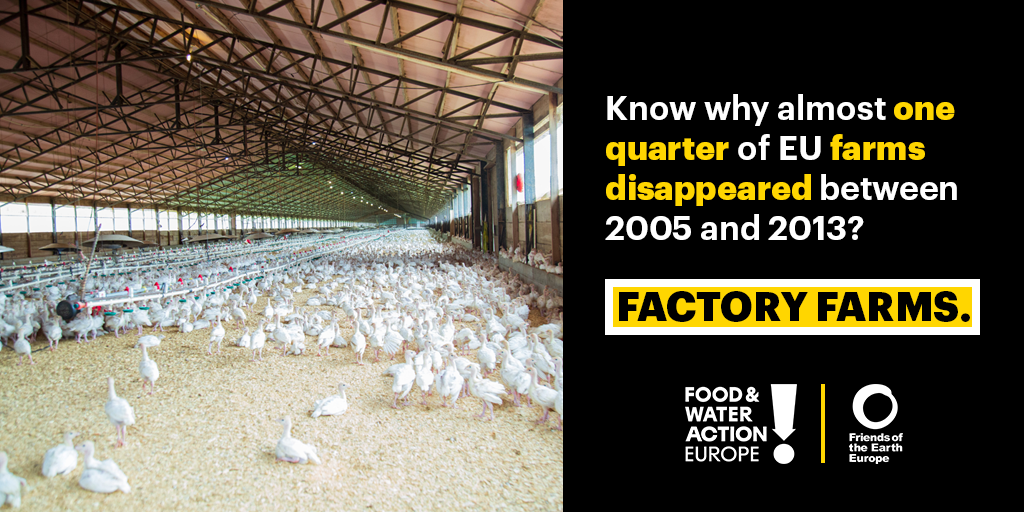Over 170 civil society organisations, led by coalition campaign Real Zero Europe, have slammed the European Commission’s leaked proposal for EU carbon removal, stating it is “full of red flags.”
Download in English | Spanish | Italian | French
Brussels, November 28, 2022 – The criticism comes just days ahead of the Commission’s expected legislative proposal for a new Carbon Removals Certification Framework, which outlines the EU’s plans for approving new carbon removal (CDR) offsets in Europe. It also follows backlash at COP27 where EU officials were accused of CDR “accounting tricks.”
The proposal has sounded alarms among climate justice and environment campaigners, food and farm movements, development and faith-based groups, and experts across Europe and beyond. Over 170 organisations have signed Real Zero Europe’s statement, calling for the EU to “deliver real, deep, emissions cuts now,” instead of generating false confidence in unproven future CDR. They argue the proposal will delay real action and cause governments to miss the rapidly-closing window to keep global temperatures below 1.5 degrees of warming by locking in fossil fuels for decades to come.
Earlier this month the EU faced criticism at the COP27 climate talks for “accounting tricks,” using updated land-based CDR estimates to claim that the bloc had raised its emissions reduction target since COP26.
The proposal promotes fossil-prolonging technofixes such as Bioenergy with Carbon Capture and Storage (BECCS) and Direct Air Carbon Capture and Storage (DACCS), and a controversial initiative called “carbon farming.” Campaigners say there is a very real danger that the EU is shifting the focus away from the essential work of phasing out fossil fuels, instead heading towards speculative technologies and impermanent land sequestration.
After COP27 — where the presence of lobbyists from the fossil fuel industry reached a new peak, watering down the conference’s outcomes — campaigners have warned that fossil fuel companies and big agriculture have had a significantly harmful influence on the Commission’s proposal.
Lucy Cadena, coordinator of the Real Zero Europe campaign, said:
“This proposal raises red flags for climate, environmental, and farming communities in Europe and beyond. The EU is betting big on unproven removals as part of its strategy to reach ‘net zero’ – but the stakes are way too high. Every ton of future promised carbon removals represents a delay in emissions cuts today, bringing us deeper into climate chaos. COP27 revealed the corporate greenwash of ‘net zero,’ with a fossil fuel phaseout omitted from the final outcome. Now, we are bringing this fight home – we cannot let historical polluters like the EU off the hook. We are demanding a Real Zero approach to climate action, and deep, sustained cuts to carbon emissions in the next short months and years.”
Jean Mathieu Thévenot, a farmer and member of European Coordination Via Campesina, said:
“Carbon farming is a risky project that is completely unrealistic for farmers and will have no effect in the fight against climate change. It is based on an unfair compensation model that relies on the good will of corporations, which seek only to greenwash their image without changing their polluting practices. The European Union must immediately put in place policies for real emissions reductions, and promote a just transition for all farmers towards agroecology.”
A full quotes sheet from the Real Zero Europe campaign is available here.
Press contact:
For further comments and information and to be connected to one of our spokespeople, please contact Lucy Hall, Press Officer at Corporate Europe Observatory (CEO): [email protected] / +44 7908 481895, or Rossella Recupero, Communications Associate at the Center for International Environmental Law (CIEL): [email protected]
Notes to editors:
-
The Real Zero Europe statement is still gathering signatures. The statement and full list of signatories will be available on Monday 28 November at https://www.realsolutions-not-netzero.org/real-zero-europe (list of signatories available to view in advance on request)
-
Real Zero Europe is the initiative of a coalition of civil society organisations aiming to expose the corporate greenwash of ‘net zero’ in Europe, resist false solutions, and push for real solutions, real emissions reductions, and Real Zero in Europe.
-
A report entitled ”Carbon Farming: How big corporations are driving the EU’s carbon removals agenda” by the Institute for Agriculture & Trade Policy (IATP), will be published on Monday 28 November at https://www.iatp.org/big-corporations-driving-eus-carbon-farming-agenda (available to view in advance on request)
-
A report entitled “”Carbon capture from biomass and waste incineration: Hype versus reality” by Biofuelwatch, will be published on Monday 28 November at https://www.biofuelwatch.org.uk/2022/biomass-and-msw-ccs-report/ (available to view in advance on request)
-
At COP27 commissioner Frans Timmermans announced that the EU would cut GHG emissions by 57% (instead of the previously promised 55%) by 2030, although closer inspection revealed that there would be no change to the actual amount of emissions reduced and the 2% ‘extra’ came from revised removals figures.
-
A leaked draft of the Commission’s proposal seen by the Real Zero Europe campaign made alarmingly little reference to fossil fuels or a fossil fuel phase-out, echoing concerns voiced at COP27.
-
A recent report that combined all governments’ climate pledges calculated the amount of land required to fulfil the total planned climate effort to be 1.2 billion hectares, roughly equal to the world’s entire food-producing base. Such an over-reliance on land-intensive removals is exemplified in the Commission’s proposal, which would introduce “carbon farming” to Europe – a scheme to incentivise agricultural and forestry practices that sequester carbon in land sinks.
The proposal also signals more support for speculative engineered removals, such as Bioenergy with Carbon Capture and Storage (BECCS) and Direct Air Carbon Capture and Storage (DACCS). However, these technologies – dubbed “fossil prolonging technologies” by campaigners – have never proven to work at scale, are prohibitively costly, polluting, and pose risks to biodiversity, food sovereignty, and human rights.



